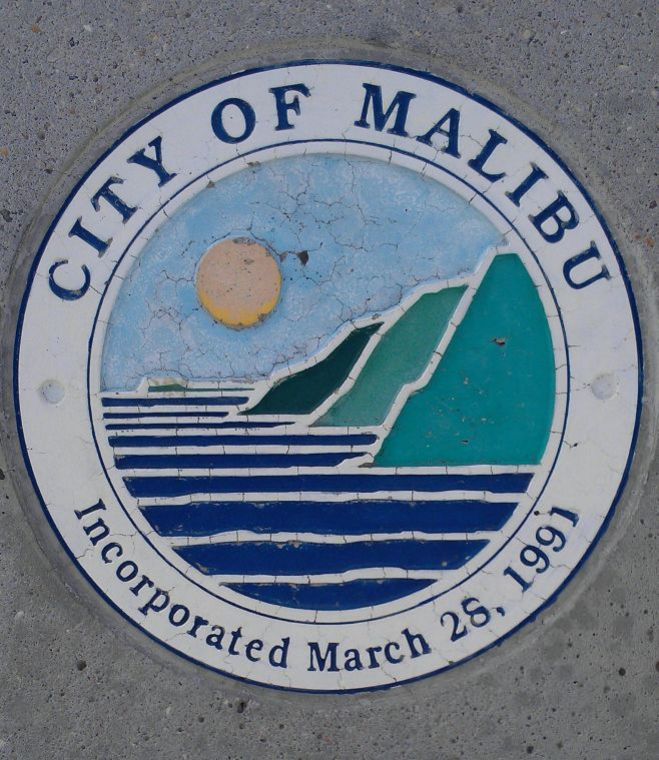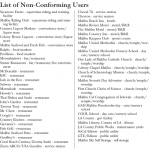Due to an obscure provision in Malibu’s Municipal Code (MMC), 50 businesses and establishments in Malibu have been operating illegally for nearly one year, and the city is moving slowly to sort out the problem. In the meantime, it faces a quandary in which many longtime local businesses that do not meet the city’s standards for parking, fire safety and other measures are operating without permits.
“If the law were to be strictly enforced, it would be extremely expensive and not particularly productive to bring these structures into compliance,” said Malibu Planning Commission Chair Jeff Jennings.
Passed in March 1993, the city’s zoning code essentially “grandfathered in” dozens of businesses and institutions that were open in Malibu before the city incorporated, laying out a 20-year period before those businesses would be required to obtain conditional use permits (CUPs) from the planning department. Included among the nonconforming businesses are equestrian centers, daycares, grocery stores, restaurants, gas stations and government buildings like the Malibu Library (see full list attached at left).
Jennings was part of the movement to gain Malibu cityhood and served on the City Council beginning in 1994.
“At the time [the MMC was passed], the attitude was ‘Well, you’ve got 20 years to get ready. At the end of the 20 years, you’re gonna have to come into compliance,’” Jennings said.
Applicants would have to pay a $3,771 processing fee to apply for a CUP. Total applicant costs would garner $188,550 in revenue, according to city staff. Still, applying for the permit would not guarantee its approval, especially if long-established restaurants and businesses are considered under-parked or out of fire safety compliance with city code.
A project to notify each owner of their noncompliance was put on hold several months ago as a result of a staffing shortage, City of Malibu Planning Director Joyce Parker-Bozylinski said, even though the operators were legally required to obtain CUPs from the planning department as of March 2013.
But city staff has yet to send out notices of the permit discrepancy to the affected establishments, and due to the unprecedented project, city officials still aren’t quite sure how to go about it.
“Before it was put on hold, we were working with the city attorney to figure out the nuts and bolts of how to go about notifying,” Parker- Bozylinski said. “We were asking, should we send [notices] all out at once? Because then we’re gonna inundated with responses. Or could we send [notices] out in phases?”
City Attorney Christi Hogin said Monday the city bears no legal liabilities for those 50 businesses being out of compliance, but that the city’s bylaws need to be addressed and possibly updated.
“It’s just a matter of policy,” Hogin said. “…One option is [for the City Council] to make legal nonconforming businesses allowed to operate in the city.”
The City Council could also choose to extend the 20-year period set out in the original MMC, or repeal the requirement altogether through a council action, Hogin said.
The only presentation made to the City Council on the issue came during an October 2013 meeting when the council received and filed a report from Project Planner Lisa Toledo. The report informed the council of “staff ’s intention to implement” the CUP requirement but did not require any vote or direction from the city’s ruling body—a “receive and file” report.
On Tuesday, Mayor Joan House said the planning department might have to return to the City Council for further direction on the project.
“I think the council has to have an array of options of how to handle it…we need a full staff report,” House said.
House remains unsure as to whether she wants the City Council to place higher priority on the CUP project, or continue having staff focus on other planning projects currently in the pipeline, including a plan to create a Specific Plan for the Civic Center.
“What happens with a small staff, if you focus on one thing and all of a sudden you throw something else into the mix, [another priority] is gonna fall off that plate,” she said Tuesday.
For now, the project remains on hold and Parker-Bozylinski estimated it would be at least one month before staff picks it up again.


